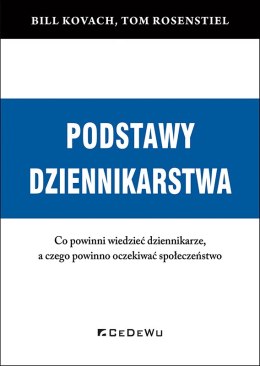-
Koszyk jest pusty
-
x

-
Koszyk jest pusty
-
x
- Kategorie
-
PRACA, OPIEKA, PŁEĆ. Nauka o (nie)szczęściu (wyd. II)

Kiedy można powiedzieć, że kobieta jest dobrą matką? Intuicyjnie jest to możliwe do określenia, ale czy obiektywnie również? Niepewność, co do standardów skłania do ich poszukiwania, często w niezbyt właściwym miejscu. I tu na scenie pojawiają się Instamatki; boginie jakości opieki nad dzieckiem, które nie tylko ustalają standardy, ale też identyfikują i kształtują kryteria oceny. A w efekcie kreślą linie oddzielające dobre matki od złych. Wobec niemożności określenia jasnych, absolutnych i obiektywnych kryteriów oceny, perfekcyjne kobiety z idyllicznych obrazków, nierzadko stanowią ważny punkt odniesienia w dokonywaniu samooceny. Instamatki są zawsze cierpliwe, wyrozumiałe, łagodne dla swoich dzieci. Gdy maluch nie chce czegoś zrobić, stosują wymyślne strategie przekonywania, zamiast po prostu je przekupić lub im zagrozić. Swoje dzieci karmią tylko naturalnymi produktami, żadnych fastfoodów, tłuszczów nasyconych i glutenu. Nie trzeba dodawać, że każdego dnia gotują obiad w domu, który serwują w bajecznie rozświetlonej słońcem jadalni. Zawsze mają zrobione pranie. Wyprasowane i poskładane ubrania leżą karnie na półkach, podłoga jest lśniąca, łóżka zaścielone. A wszystko to wygląda tak prosto i naturalnie, a przy tym jest osiągane z łatwością. (fragment rozdziału: Zazdrość. Porównania) Książka Piotra Michonia wypełnia pewną istotną lukę na polskim rynku wydawniczym, omawia bowiem kwestie związane z opieką, powołując się głównie na literaturę naukową z zakresu psychologii, filozofii, ekonomii czy socjologii, ale napisana jest z myślą o szerszym odbiorcy. Lektura obowiązkowa (...) dla osób zajmujących się rozważaniami nad opieką, ale również dla (...) rodziców. Książka ta pozwala bowiem na zweryfikowanie swojej roli, jako opiekuna/opiekunki, ale i na refleksję nad swoimi zachowaniami. Z recenzji dr hab. Anny Zachorowskiej-Mazurkiewicz, Uniwersytet Jagielloński „Szczęście nie jest, z wyjątkiem bardzo rzadkich przypadków, czymś, co spada do ust, jak dojrzały owoc, na skutek zwykłego działania szczęśliwych okoliczności. (...) Ludzkie zwierzę, podobnie jak inne, jest przystosowane do pewnej walki o życie [i] sam brak wysiłku w jego życiu usuwa niezbędny składnik szczęścia". Bertrand Russell „The Conquest of Happiness"
| Kod kreskowy | |
| ISBN | 978-83-8102-575-1 |
| EAN | 9788381025751 |
(fragment rozdziału: Zazdrość. Porównania)
Książka Piotra Michonia wypełnia pewną istotną lukę na polskim rynku wydawniczym, omawia bowiem kwestie związane z opieką, powołując się głównie na literaturę naukową z zakresu psychologii, filozofii, ekonomii czy socjologii, ale napisana jest z myślą o szerszym odbiorcy.
Lektura obowiązkowa (...) dla osób zajmujących się rozważaniami nad opieką, ale również dla (...) rodziców. Książka ta pozwala bowiem na zweryfikowanie swojej roli, jako opiekuna/opiekunki, ale i na refleksję nad swoimi zachowaniami.
Z recenzji dr hab. Anny Zachorowskiej-Mazurkiewicz, Uniwersytet Jagielloński
„Szczęście nie jest, z wyjątkiem bardzo rzadkich przypadków, czymś, co spada do ust, jak dojrzały owoc, na skutek zwykłego działania szczęśliwych okoliczności. (...) Ludzkie zwierzę, podobnie jak inne, jest przystosowane do pewnej walki o życie [i] sam brak wysiłku w jego życiu usuwa niezbędny składnik szczęścia".
Bertrand Russell „The Conquest of Happiness"
Wprowadzenie 9
Rozdział 1
Konkurencja. O inwestowaniu w dzieci 17
Dziecko jako dobro ekonomiczne - zwrot z inwestycji 18
Konieczność opieki 21
Dzieciństwo podporządkowane 24
Ja wiem co dla Ciebie najlepsze 26
„Moje będzie lepsze niż twoje" - inwestowanie jako zdobywanie przewagi konkurencyjnej 30
Ja inwestuję w dziecko. A ty? 32
Zamiast podsumowania 35
Rozdział 2
Znudzenie. Nuda sprzątania i zabawy w sklep 37
Lęk przed nudą 38
Źródła nudy 40
Konsekwencje nudy 43
Nuda prasowania i sprzątania 44
Nudna opieka nad dzieckiem? 48
Zamiast podsumowania 51
Rozdział 3
Zmęczenie. Podwójna zmiana 53
Podział pracy w gospodarstwie domowym 55
Źródła nierówności 56
Trendy w podziale pracy 59
Hipoteza wykupu -„Kochanie kupiłam sobie czas" 60
Pralka, zmywarka, czas - o roli technologii 65
Kto pracuje więcej - kobiety czy mężczyźni? 68
Postrzegana sprawiedliwość podziału 71
Męska podwójna zmiana? 78
Zamiast podsumowania 79
Rozdział 4
Zazdrość. Porównania 81
„Nie wiem, jak ona to robi" 81
Istota porównań 83
Jest ich coraz więcej 85
Zapatrzeni w górę 87
Nie jestem wystarczająco dobrą matką 89
Wiem, że to nieprawda..., ale to nie pomaga 92
Musisz być dobrą matką 94
Zamiast zakończenia 97
Rozdział 5
(Męskie) Poczucie grzechu 99
Dosiadanie osła 100
Grzech zachowywania się jak kobieta 105
Grzech niebycia prawdziwym mężczyzną 110
Zamiast podsumowania 119
Rozdział 6
Mania prześladowcza. Nierówność standardów, zamartwianie się, domowi menedżerowie 121
Nierówność standardów 121
„Ta, która wie" - nierówność w obciążeniu umysłu 129
Zamiast podsumowania 136
Rozdział 7
Obawy przez opinią publiczną. Zaangażowani ojcowie 139
Ojcowie zajmują się opieką mniej niż matki, ale powoli się to zmienia 140
Ojcowie ruszyli z wózkami 142
Sprawowanie opieki nad dzieckiem a dobrostan rodziców 146
Nowi ojcowie - oczekiwania vs. rzeczywistość 149
Biologia już nie różnicuje 152
Paradoks współczesnego ojcostwa 154
Macierzyński gatekeeping 155
Pułapka matkowania 164
Zamiast podsumowania 166
Bibliografia 169
Piotr Michoń - ekonomista, choć woli określenie: badacz społeczny.
W swojej pracy łączy ekonomię z psychologią, filozofią, socjologią i naukami przyrodniczymi. Od czasów studiów związany z Uniwersytetem Ekonomicznym w Poznaniu, gdzie jako profesor uczelniany wykłada m.in.: ekonomię szczęścia, politykę rodzinną, zachowania w organizacji. Prowadził zajęcia na uniwersytetach w Belgii, Hiszpanii, Meksyku i Rosji. Przebywał w ośrodkach badawczych w Szwecji, Szkocji, Norwegii, Holandii i Australii. Członek zarządów: European Social Policy Analysis network (ESPAnet), International Society of Quality of Life Studies (ISQOLS) oraz Polskiego Towarzystwa Polityki Społecznej (PTPS).
W swoich badaniach porusza głównie tematy związane ze szczęściem, rodziną, pracą i polityką społeczną.
Recenzent: dr hab. Anna Zachorowska-Mazurkiewicz, prof. UJ
Abraham E., Hendler T., Shapira-Lichter I., Kanat-Maymon Y., Zagoory-Sharon O., Feldman, R. (2014). Fathers brain is sensitive to childcare experiences, Proceedings of the National Academy of Sciences, 111(27), 9792-9797.
Adams J.S. (1963). Toward an understanding of inequity, Journal of Abnormal Psychology, 67, 422-436.
Aguiar B.M., Hurst E., Karabarbounis L. (2013). Time Use During the Great Recession, The American Economic Review, 103(5), 1664-1696.
Aguiar M., Hurst E. (2007). Measuring trends in leisure: The allocation of time over five decades, The Quarterly Journal of Economics, 122(3), 969-1006.
Akerlof G.A., Kranton R.E. (2000). Economics and Identity. The Quarterly Journal of Economics CXV(3): 715-53.
Alby F., Fatigante M., Zucchermaglio C. (2014). „Somebody is thinking about it": Women as household managers in dual-earner families, Zeitschrift fur Familienforschung, 26(1), 29-48.
Allen S.M., Hawkins A.J. (1999). Maternal gatekeeping: Mothers beliefs and behaviors that inhibit greater father involvement in family work, Journal of Marriage and Family, 61(1), 199-212.
Arbor A (2017). Mott Poll: Nearly Two-Thirds of Mothers „Shamed" By Others About Their Parenting Skills, Michigan University, https://www.uofmhealth.org/news/archive/201706/mott-poll-nearly-two-thirds-mothers-%E2%80%9Cshamed%E2%80%9D-others-about
Arendell T. (1996). Co-Parenting: A Review of the Literature (Vol. 1996). Philadelphia: National Center on Fathers and Families.
Bandura A. (1993). Perceived Self-Efficacy in Cognitive Development and Functioning. Educational Psychologist. 28(2), 117-148.
Barclay L., Lupton D. (1999). The experiences of new fatherhood: A socio-cultural analysis. Journal of Advanced Nursing, 29(4), 1013-1020.
Barry A.A., Smith J.Z., Deutsch F.M., Perry-Jenkins M. (2011). Fathers Involvement in Child Care and Perceptions of Parenting Skill Over the Transition to Parenthood. Journal of Family Issues, 32(11), 1500-1521.
Baum II C.L. (2003). Does Early Maternal Employment Harm Child Development? An Analysis of the Potential Benefits of Leave Taking. Journal of Labor Economics, 21(2), 409-448.
Baxter J. (2002). Patterns of change and stability in the gender division of household labour in Australia, 1986-1997, Journal of Sociology, 38(4), 399-424.
Beagan B., Chapman G.E., D'Sylva A., Bassett B.R. (2008). „Its just easier for me to do it": Rationalizing the family division of foodwork, Sociology, 42(4), 653-671.
Benowitz K.M., Head M.L., Williams C.A., Moore A.J., Royle N.J., (2013), Male age mediates reproductive investment and response to paternity assurance. Proceedings of the Royal Society B: Biological Sciences, 280 (1764).
Berk S.F. (1985). The Gender Factory The Apportionment of Work in American Households. New York, NY: Plenuym Press.
Bernal R. (2008). The Effect of Maternal Employment and Child Care on Childrens Cognitive Development. International Economics Review, 49(4), 1173-1209.
Bianchi S.M. (2011). Family Change and Time Allocation in American Families, The ANNALS of the American Academy of Political and Social Science, 638(1), 21-44.
Bianchi S.M., Milkie M.A. (2010). Work and Family Research in the First Decade of the 21st Century. Journal of Marriage and Family, 72(3), 705-725.
Bianchi S.M., Milkie M.A., Sayer L.C., Robinson J.P. (2000). Is anyone doing the housework? Trends in the Gender Division of Household Labor, Social Forces, 79(1), 191-228.
Bianchi S.M., Sayer L.C., Milkie M.A., Robinson J.P. (2012). Housework: Who Did, Does or Will Do It, and How Much Does It Matter?, Social Forces, 91(1), 55-63.
Bittman M. England P., Sayer L., Folbre N., Matheson G. (2003). When Does Gender Trump Money? Bargaining and Time in Household Work. American Journal of Sociology 109(1): 186-214.
Bittman M., Matheson G., Meagher G. (1999). The Changing Boundary between Home and Market: Australian Trends in Outsourcing Domestic Labour, Work, employment and society, 13(2), 249-273.
Bittman M., Rice J.M., Wajcman J. (2004). Appliances and their impact: The ownership of domestic technology and time spent on household work, British Journal of Sociology, 55(3), 401-423.
Bizior-Dombrowska M. (2010). Nuda metafizyczna — dwa świadectwa (Słowacki i Witkacy), Prace Literackie, 50(3267), 71-85.
Bonney J., Kelley M., Levant R. (1999). A model of fathers behavioural involvement in child care in dual-earner families. Journal of Family Psychology, 13(3), 401-415.
Braun M., Lewin-Epstein N., Stier H., Baumgärtner M.K. (2008). Perceived Equity in the Gendered Division of Household Labor. Journal of Marriage and Family, 70(5), 1145-1156.
Bright Horizons (2017). Modern Family Index 2017. (raport) dostępy: https://www.workingfamilies.org.uk/wp-content/uploads/2017/01/Modern-Families-Index_Full-Report.pdf
Brooks-Gunn J., Han W.-J., Waldfogel J. (2002). Maternal employment and child cognitive outcomes in the first three years of life: The NICHD study of early child care. Child Development, 73(4), 1052-72.
Burda M., Hamermesh D.S., Weil P. (2013). Total work and gender: Facts and possible explanations. Journal of Population Economics, 26(1), 239-261.
Bureau of Labor Statistics (2017). American time use survey - 2016 Results, U.S. Department of Labor news release. Dostępny: https://www.bls.gov/news.release/pdf/atus.pdf.
Burke P.J., Cast A.D. (1997). Stability and Change in Gender Identities of Newly Married Couples. Social Psychology Quarterly, 60(4), 277-290.
Buss, D.M. (2008). Evolutionary psychology: the new science of the mind, 3rd edition, Boston, MA: Allyn & Bacon.
Cardia E. (2008). Household Technology: Was it the Engine of Liberation? Universite de Montreal and CIREQ. Current version July 2008. First version June 2007.
Carter C.S. (2014). Oxytocin Pathways and the Evolution of Human Behavior. Annual Review of Psychology, 65(1), 17-39.
Centrum im. Adama Smitha (2019), Koszty wychowania dzieci w Polsce 2018, Warszawa.
Chou H.-T.G., Edge N. (2012). „They are happier and having better lives than I am": the impact of using Facebook on perceptions of others' lives. Cyberpsychology, Behavior and Social Networking, 15(2), 117-21.
Clubb R., Mason G. (2003). Animal welfare: captivity effects on wide-ranging carnivores. Nature 425, 473-474
Coltrane S. (1998). Household Labor and The Routing Production of Gender, [w:] K.V. Hansen, Garey A.I. (red.): Families in the U.S.: Kinship and Domestic Politics (791-808). Temple University Press: Philadelphia.
Coltrane S. (2000). Research on Household Labor : Modeling and Measuring the Social Embeddedness of Routine Family Work, Journal Of Marriage and The Family, 62(November), 1208-1233.
Coltrane S. (2000a). Research on Household Labor : and Measuring Modeling of Routine the Social Embeddedness Family Work, Journal of Marriage and the Family, 62(4), 1208-1233.
Coltrane S. (2010). Gender Theory and Household Labor, Sex Roles, 63(11-12), 791-800.
Craig L. (2006). Children and the revolution: A time-diary analysis of the impact of motherhood on daily workload, Journal of Sociology, 42(2), 125-143.
Craig L. (2006). Does Father Care Mean Fathers Share?: A Comparison of How Mothers and Fathers in Intact Families Spend Time with Children. Gender & Society, 20(2), 259-281.
Craig L. (2007). Contemporary Motherhood: The Impact of Children on Adult Time. Aldershot: Ashgate Publishing.
Craig L., Mullan K. (2011). How Mothers and Fathers Share Childcare: A Cross-National Time-Use Comparison. American Sociological Review, 76, 834-861.
Craig L., Mullan K., Blaxland M. (2010). Parenthood, policy and work-family time in Australia 1992-2006. Work, Employment & Society, 24(1), 27-45.
Cunha F., Heckman J. (2007). The Technology of Skill Formation. American Economic Review, 97(c), 31-47.
Dal Mas D.E., Wittmann B.C. (2017). Avoiding boredom: Caudate and insula activity reflects boredom-elicited purchase bias. Cortex. 92, 57-69.
Darrah C.N. (2007). The anthropology of busyness. Human Organization, 66(3), 261-269.
Davies D.R, Shackleton V.J., Parasuraman R. (1983). Monotony and boredom, [in:] R. Hockey (Ed.), Stress and fatigue in human performance (1-32). Chichester: John Wiley & Sons. 1-32.
Davis S.N., Greenstein T.N. (2004). Cross-national variations in the division of household labor. Journal of Marriage and Family, 66(5), 1260-1271.
De Mente B.L. (2009). Romantic Mexico!: The image & the Realities, Phoenix Books.
Deaner R.O., Khera A.V., Platt M.L. (2005). Monkeys pay per view: Adaptive valuation of social images by rhesus macaques. Current Biology, 15(6), 543-548.
DeMaris A., Mahoney A., Pargament K.I. (2010). Sanctification of Marriage and General Religiousness as Buffers of the Effects of Marital Inequity. Journal of Family Issues, 31(10), 1255-1278.
Diamond J. (2012). The World Until Yesterday, Viking Press.
Dixon J., Wetherell M. (2004). On Discourse and Dirty Nappies: Gender, the Division of Household Labour and the Social Psychology of Distributive Justice. Theory & Psychology, 14(2), 167-189.
Douglas S., Michaels M. (2004). The Mommy Myth: The Idealization of Motherhood and How It Has Undermined Women, Free Press.
Elster J. (1989). Social Norms and Economic Theory. Journal of Economic Perspectives 3(4): 99-117.
Eswaran M. (2014). Why Gender Matters in Economics, Princeton: Princeton University Press.
Eurostat (2006) How is the Time of Women and Men Distributed in Europe?, Statistics in Focus, 4(Christel Aliaga). Available at: http://eeurostat.ec.europa.eu/cache/ITY_OFFPUB/KS-NK-06-004/EN/KS-NK-06-004-EN.PDF
Evans J.A. (2002). Cautious Caregivers: Gender Stereotypes and the Sexualization of Men Nurses Touch. Journal of Advanced Nursing 40(4): 441-48.
Evertsson M., Nermo M. (2007). Changing Resources and the Division of Housework. European Sociological Review 23(4): 455-70.
Fagan J., Barnett M. (2003). The Relationship between Maternal Gatekeeping, Paternal Competence, Mothers Attitudes about the Father Role, and Father Involvement. Journal of Family Issues, 24(8), 1020-1043.
Fahlman S.A., Mercer K.B., Gaskovski P., Eastwood A.E., Eastwood J.D. (2009). Does a Lack of Life Meaning Cause Boredom? Results from Psychometric, Longitudinal, and Experimental Analyses. Journal of Social and Clinical Psychology, 28(3), 307-340.
Feldman R. (2012). Oxytocin and social affiliation in humans. Hormones and Behavior, 61(3), 380-391.
Fisher H. (2004). Anatomia miłości, Dom Wydawniczy Rebis, Poznań.
Flandrin J-L. (2015), Historia rodziny, Aletheia: Warszawa.
Folbre N., Bittman M. (2004). Family time. The Social Organization of Care. London, New York: Routledge.
Frank R., Cook P. (1996). The Winner-Take-All Society, Penguing Books.
Fromm E. (2008). Anatomia ludzkiej destrukcyjności, Dom Wydawniczy Rebis: Poznań.
Fuwa M. (2004). Macro-level gender inequality and the division of household labor in 22 countries, American Sociological Review, 69(6), 751-767.
Gaunt R. (2008). Maternal Gatekeeping: Antecedents and Consequences. Journal of Family Issues, 29(3), 373-395.
Gauthier A.H., DeGusti B. (2012). The time allocation to children by parents in Europe, International Sociology, 27(6), 827-845.
Geary D.C. (2000). Evolution and proximate expression of human paternal investment. Psychological Bulletin, 126(1), 55-77.
Gettler L.T. (2010). Direct male care and hominin evolution: Why male-child interaction is more than a nice social idea. American Anthropologist, 112(1), 7-21.
Giannelli G.C., Mangiavacchi L., Piccoli L. (2012). GDP and the value of family caretaking: how much does Europe care?, Applied Economics, 44(16), 2111-2131.
Gilbert D.T., Giesler R.B., Morris K.A. (1995). When comparisons arise. Journal of Personality and Social Psychology, 69(2), 227-236.
Gimenez-Nadal J.I., Sevilla A. (2014). Total work time in Spain: Evidence from time diary data. Applied Economics, 46(16), 1894-1909.
Goffman E. (1977). The Arrangement between the Sexes. Theory and Society 4(3): 301-31.
Gonzales A.L., Hancock J.T. (2011). Mirror, Mirror on my Facebook Wall: Effects of Exposure to Facebook on Self-Esteem. Cyberpsychology, Behavior, and Social Networking, 14(1-2), 79-83.
Gordon I., Zagoory-sharon O., Leckman J.F., Feldman R. (2010). Oxytocin and the Development of Parenting in Humans. Biological Psychiatry, 68(4), 377-382.
Gough M., Killewald A. (2011). Unemployment in Families: The Case of Housework. Journal of marriage and the family 73(5): 1085-1100.
Greenstein T.N. (1996). Husbands Participation in Domestic Labor: Interactive Effects of Wives and Husbands Gender Ideologies. Journal of Marriage and Family, 58(3), 585-595.
Greenstein T.N. (2000). Economic Dependence , Gender , and the Division of Labor in the Home: A Replication and Extension. Journal of Marriage and Family, 62(May), 322-335.
Greenstein T.N. (2009). National context, family satisfaction, and fairness in the division of household labor. Journal of Marriage and Family, 71(4), 1039-1051.
Gregg P., Washbrook E., Propper C., Burgess S. (2005). The Effects of a Mothers Return To Work Decision on Child Development in the UK. The Economic Journal, 115(501), F48-F80.
Griffin R.W. (2005). Podstawy zarządzania organizacjami, Wydawnictwo Naukowe PWN, Warszawa. 2005.
Grote N.K., Clark M.S. (2001). Perceiving unfairness in the family: cause or consequence of marital distress? Journal of Personality and Social Psychology, 80(2), 281-293.
Guthrie J.F., Biing-Hwan L., Frazao E. (2002). Role of Food Prepared Away from Home in the American Diet, 1977-78 versus 1994-96: Changes and Consequences. Journal of Nutrition Education and Behavior, 34(3), 140-150.
Hakim C. (2010). (How) can social policy and fiscal policy recognise unpaid family work? Renewal: a Journal of Labour Politics, 18(1/2), 23-33.
Hamermesh D.S. (2007). Time to eat: Household production under increasing income inequality. American Journal of Agricultural Economics, 89(4), 852-863.
Harrington B., Fraone J.S., Lee J., Levey L. (2016). The New Millennial Dad: Understanding the Paradox of Todays Fathers. Boston: Boston College, Center for Work and Family.
Harrington B., van Deusen F., Sabatini Fraone J., Mazaar I. (2015). The New Dad. A Portrait of Todays Father. Boston College, Center for Work and Family.
Havermans R.C., Vancleef L., Kalamatianos A. and Nederkoorn C. (2015). Eating and inflicting pain out of boredom. Appetite 85, 52-57.
Hays S. (1996). The Cultural Contradictions of Motherhood. New Haven: Yale University Press.
Heisig J.P. (2011). Who does more housework: Rich or poor? a comparison of 33 countries. American Sociological Review, 76(1), 74-99.
Hetschko C., Knabe A, Schöb R. (2014). Changing Identity: Retiring from Unemployment. Economic Journal 124(575): 149-66.
Hill J.L., Waldfogel J., Brooks-Gunn J., Han W.-J. (2005). Maternal employment and child development: a fresh look using newer methods. Developmental Psychology, 41(6), 833-50.
Hochshild A.R. (2012). The Managed Heart. Commercialization of Human Feeling. Berkley: University of California Press.
Hochschild A.R., Machung A. (2003). The Second Shift. 2nd edn. New York, NY: Penguin Books.
Hollows J. (2003). Oliver s twist Leisure, labour and domestic masculinity in The Naked Chef. International Journal of Cultural Studies, 6(2), 229-248.
Hook J.L. (2017). Womens Housework: New Tests of Time and Money. Journal of Marriage and Family, 79(1), 179-198.
Huxtable Z.L., White M.H., McCartor M.A. (1946). A re-performance and re-interpretation of the Arai Experiment in mental fatigue with three subjects. Psychological Monographs 59(5):52.
Jansen L., Weber T., Kraaykamp G., Verbakel E. (2016). Perceived fairness of the division of household labor: A comparative study in 29 countries. International Journal of Comparative Sociology, 57(1-2), 53-68.
Jahoda M., Lazarsfeld P.F., Zeisel H. (2002) Marienthal: The Sociography of an Unemployed Community. Transaction Publishers (English version).
Jex H.R. (1988). Measuring mental workload: Problems, progress, and promises. Advances in Psychology, 25, 5-39.
Kahneman D., Krueger A.B. (2006). Developments in the Measurement of Subjective Well-Being. Journal of Economic Perspectives, 20(1), 3-24.
Kahneman D., Krueger A.B., Schkade D., Schwarz N., Stone A.A. (2004). A survey method for characterizing daily life experience: The Day Reconstruction Method (DRM). Science, 306, 1776-1780.
Kamo Y. (2000). „He Said, She Said": Assessing discrepancies in husbands and wives reports on the division of household labor. Social Science Research, 29(December), 459-476.
Kan M.Y., Sullivan O., Gershuny J. (2011). Gender Convergence in Domestic Work: Discerning the Effects of Interactional and Institutional Barriers from Large-scale Data. Sociology, 45, 234-251.
Kaufman G., Uhlenberg P. (2000). The Influence of Parenthood on the Work Effort of Married Men and Women. Social Forces, 78 (3): 931-949.
Knudsen E.I., Heckman J.J., Cameron J.L., Shonkoff J.P. (2006). Economic, neurobiological, and behavioral perspectives on building America's future workforce, PNAS, 103 (27), 10155-10162.
Kowalik T., Gruszczyński B., Radziszewska A., Gruszczyński W. (2005). Przeniesiony zespół Münchhausena. Postępy Psychiatrii i Neurologii 14 (4).
Kowecka E. (1989). W salonie i w kuchni. Opowieść o kulturze materialnej pałaców i dworów polskich w XIX w., Państwowy Instytut Wydawniczy: Warszawa.
Krueger A.B. (2008). Are We Having More Fun Yet? Categorizing and Evaluating Changes in Time Allocation, Brookings Papers on Economic Activity, 2007(2), 193-215.
Kurzban R., Duckworth A., Kable J.W., Myers J. (2013). An opportunity cost model of subjective effort and task performance. Behavioral and Brain Sciences, 36(6), 661-679.
Lamb M.E. (2010). The Role of the Father in Child Development. (5th ed.). Hoboken: John Wiley & Sons, Inc.
Larson R. (1989). Is Feeling „in Control" Related to Happiness in Daily Life? Psychological Reports, 64 (3), 775-784.
Lavee Y., Katz R. (2002). Divison of labor, perceived fairness, and marital quality: The effect of gender ideology. Journal of Marriage and Family, 64(February), 27-39.
Lewin K. (1947). Frontiers in Group Dynamics: Concept, Method and Reality in Social Science; Social Equilibria and Social Change. Human Relations, 1, 5-41.
Lewis O. (1949). Husbands and Wives in a Mexican Village: A Study of Role Conflict. American Anthropologist, New Series, 51(4), 602-610.
Li T., Chen X., Mascaro J., Haroon E., Rilling J.K. (2017). Intranasal oxytocin, but not vasopressin, augments neural response to toddlers in human fathers. Hormones & Behavior, 93, 193-202.
Lieberman M.D., Eisenberger N.I. (2009). Pains and pleasures of social life. Science, 323(5916), 890-891.
Lockwood P., Kunda Z. (1997). Superstars and Me: Predicting the Impact of Role Models on the Self. Journal of Personality and Social Psychology, 73(1), 91-103.
Lutz H. (2002). At Your Service Madam ! The Globalization of Domestic Service. Feminist Review, (70), 89-104.
Machin A.J. (2015), Mind the gap: the expectation and reality of involved fatherhood. Fathering, 13(1):36-59.
Madge C., O'Connor H. (2006). Parenting gone wired: Empowerment of new mothers on the internet? Social and Cultural Geography, 7(2), 199-220.
Major B. (1993). Gender, entitlement, and the distribution of family labor. Journal of Social Issues, 49(3), 141-159.
Mäntymäki M., Islam A.K.M.N. (2016). The Janus face of Facebook: Positive and negative sides of social networking site use. Computers in Human Behavior, 61, 14-26.
McBride B.A., Brown G.L., Bost K.K., Shin N., Vaughn B., Korth B. (2005). Paternal identity, maternal gatekeepng, and father involvement. Family Relations, 54(July), 360-372.
Mead M. (2013). Mężczyźni i kobiety, Wydawnictwo Vis-a-vis: Warszawa.
Meagher R.K., Mason G.J. (2012). Environmental Enrichment Reduces Signs of Boredom in Caged Mink. PLoS ONE, 7(11).
Michoń P. (2008), Praca Matek w Polityce Krajów Unii Europejskiej, Poznań: Wydawnictwo Akademii Ekonomicznej w Poznaniu.
Michoń P. (2015). Zatrzymana rewolucja? Zmiany w podziale pracy w gospodarstwach domowych. Międzynarodowe badanie porównawcze. Poliytka Społeczna, (2), 27-33.
Mikula G. (1998). Division of household labor and perceived justice: A growing field of research. Social Justice Research, 11(3), 215-241.
Milkie M.A., Bianchi S.M., Mattingly M.J., Robinson J.P. (2002). Gendered division of childrearing: Ideals, realities, and the relationship to parental well-being. Sex Roles, 47(1-2), 21-38.
Milkie M.A., Kendig S.M., Nomaguchi K.M., Denny K.E. (2010). Time with children, childrens well-being, and work-family balance among employed parents. Journal of Marriage and Family, 72(5), 1329-1343.
Milkie M.A., Kendig S.M., Nomaguchi K.M., Denny K.E. (2010). Time with children, childrens well-being, and work-family balance among employed parents. Journal of Marriage and Family, 72(5), 1329-1343.
Miller A.J., Sassler S. (2012). The Construction of Gender Among Working-Class Cohabiting Couples. Qualitative Sociology 35(4): 427-46.
Millgram E. (2004). On Being Bored out of Your Mind, in Meeting of the Aristotelian Society, held in Senate House, University of London, on Monday, 8th March, 2004 at 4.15 p.m.
Monna B., Gauthier A.H. (2008). A review of the literature on the social and economic determinants of parental time. Journal of Family and Economic Issues, 29(4), 634-653.
Mott Poll Report (2017). Mom Shaming or Constructive Criticism? Perspectives of Mothers. (raport) Dostępny: https://mottpoll.org/reports-surveys/mom-shaming-or-constructive-criticism-perspectives-mothers
Nederkoorn C., Vancleef L., Wilkenhöner A., Claes L., Havermans R.C. (2016). Self-inflicted pain out of boredom. Psychiatry Research, 237, 127-132.
Nordenmark M., Nyman C. (2003). Fair or Unfair? Perceived Fairness of Household Division of Labour and Gender Equality among Women and Men: The Swedish Case. The European Journal of Womens Studies, 10(2), 181-209.
Offer S. (2014). Time with children and employed parents emotional well-being. Social Science Research, 47, 192-203.
Öun I. (2013). Is it Fair to Share? Perceptions of Fairness in the Division of Housework Among Couples in 22 Countries. Social Justice Research, 26(4), 400-421.
Plantin L., Daneback K. (2009). Parenthood, information and support on the internet. A literature review of research on parents and professionals online, BMC Family Practice, 10, 1-12.
Poortman A., Van Der Lippe T. (2009). Attitudes toward housework and child care and the gendered division of labor. Journal of Marriage and Family, 71(August), 526-541.
Ramey V.A. (2008). Time Spent in Home Production in the 20th Century: New Estimates from Old Data. National Bureau of Economic Research Working Paper Series, No. 13985(1).
Rantanen J., Kinnunen U., Mauno S., Tillemann K. (2011). Introducing theoretical approaches to work-life balance and testing a new typology among professionals", [w:] Kaiser S., Ringlstetter M., Eikhof D.R., Pina e Cunha M. (red). Creating balance? International perspectives on the work-life integration of professionals (27-46). Berlin: Springer.
Rousseau J.J. (2011). Emil, czyli o wychowaniu, Virtualo Darmowa Klasyka.
Ruhm C.J. (2008). Maternal employment and adolescent development. Labour Economics, 15(5), 958-983.
Ruppanner L. (2010). Conflict and Housework: Does Country Context Matter ?, European Sociological Review, 26(5), 557-570.
Russell B. (2006). The Conquest of Happiness, London and New York: Routledge.
Russell B. (2018). Pochwała lenistwa; dostępny na: http://www.humanizm.net.pl/pochwala.html; dostęp: 10.10.2018.
Ryff C.D., Keyes C.L.M. (1995). The structure of psychological well-being revisited., Journal of Personality and Social Psychology, 69(4), 719-727.
Sanderson S., Thompson V.L.S. (2002). Factors associated with perceived paternal involvement in Child rearing. Sex Roles, 46(February), 99-111.
Sarkadi A., Bremberg S. (2005). Socially unbiased parenting support on the Internet: a cross-sectional study of users of a large Swedish parenting website. Child: Care, Health and Development, 31(1), 43-52.
Saturn S.R. (2014). Flexibility of the fathers brain. Proceedings of the National Academy of Sciences, 111(27), 9671-9672.
Sayer L. (2015). The Complexities of Interpreting Changing Household Patterns, Brief Reports, Online Symposia, posted May 7, https://contemporaryfamilies.org/complexities-brief-report/
Sayer L.C., Gornick J.C. (2012). Cross-national variation in the influence of employment hours on child care time. European Sociological Review, 28(4), 421-442.
Schneider D. (2011). Market Earnings and Household Work: New Tests of Gender Performance Theory. Journal of Marriage and Family 73(4): 845-60.
Schneider D. (2012). Gender Deviance and Household Work: The Role of Occupation. American Journal of Sociology 117(4): 1029-72.
Schoppe-Sullivan S.J., Brown G.L., Cannon E.A., Mangelsdorf S.C., Sokolowski M.S. (2008). Maternal Gatekeeping, Coparenting Quality, and Fathering Behavior in Families With Infants. Journal of Family Psychology, 22(3), 389-398.
Schwartz B. (2016). The Paradox of Choice. Why more is less, (e-book, revised edition), HarperCollins Publishers.
Short F. (2006). Kitchen secrets. Oxford: Berg.
Smith A., Williams D. (2007). Father friendly legislation and paternal time across Western Europe. Journal of Comparative Policy Analysis. 9:175-192.
Smith R.P. (1981) Boredom: A Review, Human Factors: The Journal of the Human Factors and Ergonomics Society, 23(3), 329-340.
Stearns P. (2003). Anxious Parents. A History of Modern Childrearing in America. New York; New York University Press.
Stutzer A., Lalive R. (2004). The Role of Social Work Norms in Job Searching and Subjective Well-Being. Journal of the European Economic Association 2(4): 696-719.
Sullivan O., Gershuny J. (2013). Domestic outsourcing and multitasking: How much do they really contribute? Social Science Research, 42(5), 1311-1324.
Szabo M. (2013). Foodwork or Foodplay? Mens Domestic Cooking, Privilege and Leisure. Sociology, 47(4), 623-638.
Takahashi H., Kato M., Matsuura M., Mobbs D., Suhara T., Yoshiro Okubo (2009). When Your Gain Is My Pain and Your. Science, 323(February), 937-939.
Tanisho Y. (2013). Economic Distress and Suicide in Japan. Health and Global Policy Institute (October).
Thackray R.I. (1981). The stress of boredom and monotony: A consideration of the evidence. Psychosomatic Medicine, 43(2), 165-176.
Thompson S.C. (1981). Will it hurt less if I can control it? A complex answer to a simple question. Psychological Bulletin 90, 89-101.
Treas J., van der Lippe T., Tai T.C. (2011). The Happy Homemaker? Married Women's Well-Being in Cross-National Perspective. Social Forces , 90(1), 111-132.
Tuchman B.W. (2017). A Distant Mirror: The Calamitous 14th Century. Penguin Books.
Twiggs J.E., McQuillan J., Ferree M.M. (1999). Meaning and Measurement: Reconceptualizing Measures of the Division of Household Labor. Journal of Marriage and the Family 61: 712-24.
United Nations (2015). The Worlds Women 2015: Trends and Statistics. New York: United Nations, Department of Economics and Social Affairs, Statistics Division.
University Of Florida. (2004). For A Male Sand Goby, Playing Mr. Mom Is Key To Females Heart. ScienceDaily. Dostęp: Luty 14, 2018 www.sciencedaily.com/releases/2004/05/040505064746.htm
van Tilburg W.A.P., Igou E.R. (2012). On boredom: Lack of challenge and meaning as distinct boredom experiences. Motivation and Emotion, 36(2), 181-194.
Vandello J.A., Bosson J.K. (2013). Hard Won and Easily Lost: A Review and Synthesis of Theory and Research on Precarious Manhood. Psychology of Men and Masculinity 14(2): 101-13.
Vogel E.A., Rose J.P., Roberts L.R., Eckles K. (2014). Social comparison, social media, and self-esteem. Psychology of Popular Media Culture, 3(4), 206-222.
Wallop H. (2009). Men spending more time in the kitchen. The Telegraph online, 17 August. dostępne: http://www.telegraph.co.uk/foodanddrink/foodanddrinknews/6030731/Men-spending-more-time-in-the-kitchen.html (accessed 23 June 2011).
Walzer S. (1998). Thinking About the Baby : Gender and Transitions Into Parenthood Women in the Political Economy. Temple University Press.
Walzer S. (1998). Thinking About the Baby: Gender and Transitions Into Parenthood Women in the Political Economy. Temple University Press.
West C., Zimmerman D.H. (1987). Doing Gender. Gender & Society 1(2): 125-51.
Whillans A.V., Dunn E.W., Smeets P., Bekkers R., Norton M.I. (2017). Buying time promotes happiness, Proceedings of the National Academy of Sciences, 114(32), 8523-8527. doi: 10.1073/pnas.1706541114.
Wilson T.D., Reinhard D.A., Westgate E.C., Gilbert D.T., Ellerbeck N., Hahn C., Brown C.L. and Shaked A. (2014). Just think: The challenges of the disengaged mind. Science, 345(6192), 75-77.
Windebank J. (2007). Outsourcing women's domestic labour: the Cheque Emploi-Service Universel in France. Journal of European Social Policy, 17(3), 257-270.
Young M., Wallace J.E., Polachek A.J. (2013). Gender Differences in Perceived Domestic Task Equity: A Study of Professionals. Journal of Family Issues, Online before (21 November 2013), 1-31.
Zachorowska-Mazurkiewicz A. (2016). Praca kobiet w teorii ekonomii - perspektywa ekonomii głównego nurtu i ekonomii feministycznej. Kraków: Wydawnictwo Uniwersytetu Jagiellońskiego.
Zelizer Vi. A. (2011). Economic Lives. How culture shapes the economy. Princeton, Oxford: Princeton University Press.
Polub nas na Facebooku


















